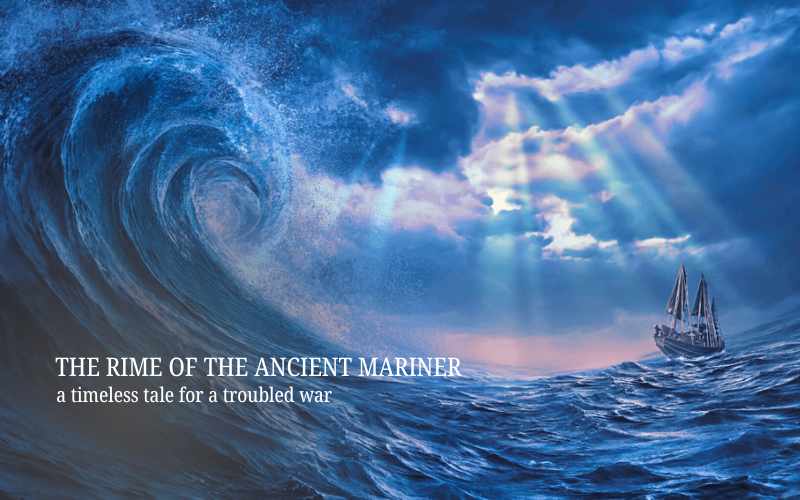
The Rime of the Ancient Mariner: A Timeless Tale for a Troubled World
0 Like
0.0
A Modern Reflection by Kamal Singha
Samuel Taylor Coleridge’s The Rime of the Ancient Mariner is more than just a gothic poem of supernatural punishment and redemption; it is a lyrical voyage into the human soul. Written in the late 18th century, this masterwork of Romantic poetry continues to resonate deeply in the 21st century, especially as the world grapples with climate change, spiritual crises, and the alienation brought by modernity.
A Summary of the Mariner’s Tale
The
poem tells the story of a grizzled old mariner who stops a guest on his way to
a wedding to share a tale of woe. He recounts a sea voyage gone wrong after he
impulsively kills an albatross, a bird believed to bring good luck. This single
act of thoughtless violence sets off a chain of supernatural punishments: the
ship becomes stranded in a windless sea, the crew dies, and the mariner is left
alone, cursed with guilt and despair.
Ultimately,
when he learns to appreciate the natural world, blessing the sea creatures he
once despised, the curse begins to lift. Though rescued, the mariner is forever
changed. His penance is to travel the world, telling his story to strangers, as
a warning and a lesson.
The Albatross of Our Age
In
today’s world, the albatross has become a powerful metaphor for the burdens we
carry due to our exploitation of nature. Just as the mariner killed the bird without
reason, humanity too has often acted out of arrogance and short-sightedness,
cutting down forests, polluting oceans, and disrupting the balance of
ecosystems. Climate change, species extinction, and environmental degradation
are the modern-day consequences of our disregard - our version of the dead
albatross hanging heavy on our conscience.
The
mariner’s isolation in a rotting ship surrounded by dead companions echoes
today’s spiritual loneliness and mental health crises, especially in an age of
digital noise and shallow connectivity. We are, in many ways, adrift, searching
for purpose and meaning in a world that often feels unmoored.
Redemption through Reverence
What
ultimately saves the mariner is not a miracle, but a moment of humble wonder.
When he sees the sea creatures not as slimy threats but as beautiful, living
beings, he instinctively blesses them. This act of genuine compassion, born not
from duty but from love, breaks the curse. In this, Coleridge offers a timeless
truth: Redemption begins when we see the world not as a resource to be used,
but as a sacred web of life to be respected.
This
message is more urgent than ever. As we face mounting global crises -
ecological, political, and spiritual, where Coleridge’s poem reminds us that
the path to healing begins within. We must learn, like the mariner, to truly
see, to truly care, and to take responsibility for our actions.
The Mariner's Mission Today
The
mariner’s punishment is also his mission: to share his story so that others
might not repeat his mistake. In our own time, this role is being played by
climate scientists, indigenous leaders, youth activists, and storytellers who
warn of looming danger and beg us to change course.
The
poem closes with the famous moral:
“He prayeth well, who loveth well
Both man and bird and beast.”
In a world teetering between collapse and renewal,
Coleridge’s vision endures as both caution and hope. We are all mariners now,
and the future depends on whether we choose to listen.
Disclaimer: The opinions expressed in this article are those of the author's. They do not purport to reflect the opinions or views of The Critical Script or its editor.

Newsletter!!!
Subscribe to our weekly Newsletter and stay tuned.

















Related Comments